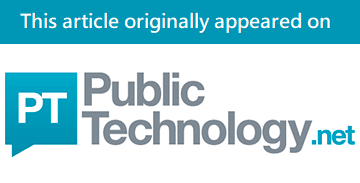HM Revenue and Customs has accepted it needs to improve online tools before it adopts a “digital-by-default” approach to income tax services after services users warned against "moving too quickly".
The tax agency has published findings from a consultation process it conducted last year in which service users were asked about the plan, which would involve changes to legislation that would permit the department to deal with service users entirely digitally – unless they expressly ask for paper correspondence.
The proposed legal tweaks would also require taxpayers to provide a means through which HMRC can contact them electronically, while providing the department with “more flexibility in how it communicates tax code changes”, according to government’s newly published consultation response.
taxpayers to provide a means through which HMRC can contact them electronically, while providing the department with “more flexibility in how it communicates tax code changes”, according to government’s newly published consultation response.
But, while those who took part in the feedback exercise “welcomed further digitalisation” of HMRC services in principle, they also “cautioned against moving too quickly”, and told the department that further work is first needed on current online tools.
“[Respondents said] that HMRC should take a gradual approach to the move to digital, allowing taxpayers to adjust to the changes,” says the outcome summary. “They added that HMRC needs to improve its current digital services before proceeding with a digital-by-default approach.”
In its response to the finding, the department said that it “acknowledges the clear feedback on the quality of its current digital services”.
“[HMRC] is working to improve the range and accessibility of its digital service offering and will not require digital interaction until a service is of a suitable standard,” it added. “Overall, HMRC online channels received an 83.7% satisfaction rating in 2022-23 but there is more to be done. Changes will be implemented gradually and adequate guidance will be provided to enable taxpayers and agents to adapt.”
As part of the consultation, the tax agency conducted 13 roundtable discussions bringing together tax specialists and other interested parties, and also received 39 written responses – about two-thirds of which were form either professional bodies or tax agents.
These agents being unable to access the necessary digital tools and information on behalf of their clients was flagged as a key reason “for continued reliance on paper forms and letters”.
In its response, the department said: “HMRC will ensure that agents are considered from the outset in the design and development of new services, as it is doing for Making Tax Digital (MTD) for income tax self-assessment, which is designed to make it as easy as possible for agents to act on behalf of their clients. Agents who have registered for an agent services account will be able to sign up their clients to MTD and submit updates and returns on their behalf directly from their software. A similar service is already available for MTD for VAT. HMRC is also working to enhance agent digital authorisation services to make the process simpler and more secure.”
Other barriers cited to a comprehensively digital approach include a lack of a digital option for some forms, and others where the paper version remained preferable because there was no “facility to save a partially completed digital form and the taxpayer could not always see which supporting information would be required from the outset”.
The "complexity" of the Government Gateway log-in was also brought up as a challenge to further digitisation – although, in this case, the department will shortly begin replacing the 23-year-old sign-in system with the new government-wide One Login platform.
Cracking the code
Elsewhere in the consultation, respondents told HMRC that tax codes do “not always reflect employees’ current circumstances and could sometimes fail to keep pace with changes, especially when an individual moved job part way through the month”. The department “does not fully utilise the real-time information data it collects from employers and that the system should have two-way communication, so HMRC can provide tax codes to employers more quickly”, some participants suggested.
However, when it was put to them that technological advances could meant that the current tax code system could be replaced with something more flexible and interactive, “most respondents felt tax codes worked for the majority of taxpayers and that there was no viable alternative that could deliver everything tax codes did”.
“However, many respondents said underlying systems needed to be improved to fully benefit taxpayers and HMRC,” the outcome document added.
In its response HMRC said that, while it will continue to deliver digital transformation, it “is committed to providing services to all taxpayers [and] will continue to help those who need extra support and guidance to manage their tax affairs digitally and will always ensure that there are non-digital alternatives for those who are digitally excluded”.
“HMRC’s initial focus is on developing and improving its online services for individual customers,” the department added.
Earlier this month, HMRC rejected calls from MPs for it to prioritise customer needs in its digital reform programme.